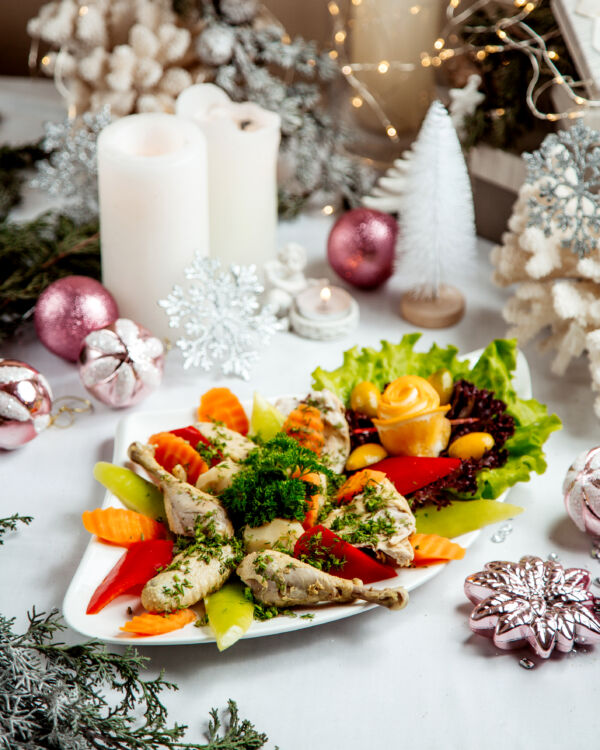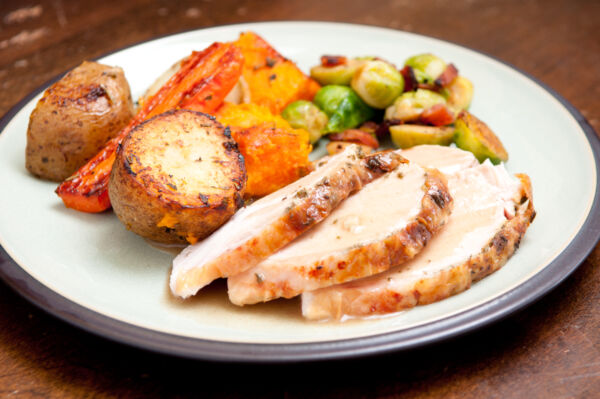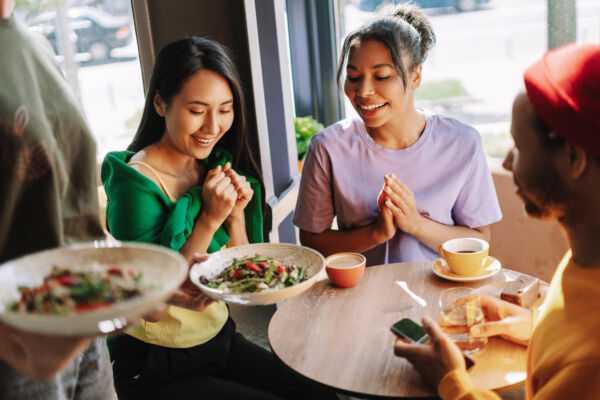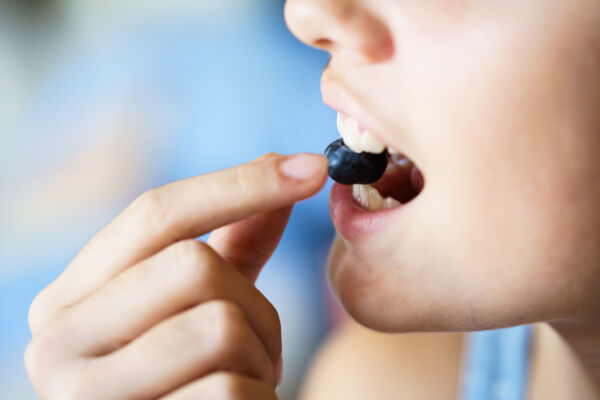
Autoimmune-Friendly Diet: 7 Tips to Nourish through the Holidays
The holidays are a season for celebration, connection, and (let’s be honest) indulgence. But for those of us navigating an autoimmune condition, the endless spreads of sugary desserts and refined snacks can feel more stressful than joyful.
The good news? It’s absolutely possible to enjoy the festivities while nourishing your body and sticking to your healing goals. By focusing on whole foods and simple, gut-friendly choices, you can feel great and still savor the season.
Let’s explore how to create an autoimmune-friendly holiday experience, guided by principles that support both healing and enjoyment. 😃
1. Start Strong with Purposeful Hydration
The foundation of a good day—holiday or otherwise—begins with hydration. A simple, warm cup of lemon water in the morning can set the tone. 🍋
This refreshing ritual supports digestion, wakes up your liver, and provides a quick hit of vitamin C to strengthen immunity. Starting with lemon water not only feels luxurious but also helps your body prepare for any indulgences later in the day.

For holiday mornings, pair your lemon water with a protein-rich breakfast to stabilize blood sugar and fuel your body for the festivities. Think a breakfast hash made with ground turkey or chicken, sautéed greens, roasted sweet potatoes, and a side of avocado. By starting with nutrient-dense, anti-inflammatory foods, you’ll feel more energized and less likely to overindulge later.
2. Embrace Whole Foods, the Foundation of Healing
A key principle of an autoimmune-friendly diet is sticking to foods that are minimally processed and nutrient-rich. The easiest way to remember this? Focus on ingredients “grown in the ground, caught in the ocean, or raised on a farm.” For holiday meals, this might mean roasted vegetables, grass-fed meats, or fresh seafood.
Let your holiday plate reflect the healing power of whole foods. Opt for sweet potatoes or squash instead of stuffing, roasted Brussels sprouts instead of casseroles laden with cream, and a clean protein like turkey or salmon as the centerpiece. By focusing on whole, unrefined ingredients, you’ll support your body’s healing without sacrificing flavor.

3. Make Protein the Star of Your Plate
Protein is essential for maintaining energy and balancing blood sugar, especially when you’re managing an autoimmune condition. During holiday meals, aim to fill your plate with a generous portion of protein first, whether it’s roasted turkey, grilled fish, or a plant-based option like lentils.

A commonly recommended starting point is around 0.8-1.2 grams of protein per kilogram of body weight for a sedentary individual, with higher amounts for active individuals or those recovering from illness. Adjustments should be made under professional guidance to align with specific autoimmune conditions and overall dietary goals.
4. Don’t Forget Gut-Healing Additions
The holidays can be hard on digestion, but adding gut-friendly foods can make a big difference. Incorporate small servings of fermented foods like sauerkraut, kimchi, or pickles as a side dish. If you’re hosting, consider including a simple bone broth soup as a warm, comforting appetizer.

Bone broth is rich in amino acids like glycine and proline, which are known for their gut-healing properties. It’s also soothing, making it a perfect option if holiday stress has your digestion out of balance.
5. Satisfy Cravings Mindfully
Let’s face it: the holidays wouldn’t be complete without a few indulgent treats. The key is to approach them mindfully. Instead of reaching for processed cookies or candies, consider nutrient-rich alternatives like baked apples, a few squares of dark chocolate, or a fruit-based dessert.

For a show-stopping holiday treat, try making a paleo-style dessert like pumpkin bread or coconut milk custard. These options allow you to indulge without overloading your body with inflammatory ingredients.
6. Snack Smart, If You Need To
If holiday schedules leave you feeling hungry between meals, reach for whole-food snacks that sustain your energy. A few great options include:
- A handful of berries paired with a clean meat stick.
- Cubed cheese with avocado slices and a sprinkle of sea salt.
- Leftover roasted vegetables with a hard-boiled egg.
Remember, snacks can be miniature versions of meals—there’s no rule that says they must be chips or cookies.

7. Keep It Simple and Enjoyable
Food is about more than just fuel; it’s also about connection, joy, and celebration. An autoimmune-friendly holiday doesn’t mean giving up all your favorite traditions. Instead, it’s about tweaking recipes and choosing ingredients that align with your healing journey.
Plan ahead by prepping proteins or sides in advance, so you’re less likely to feel overwhelmed in the kitchen. Consider meal delivery services for added convenience if cooking everything feels like too much. And don’t be afraid to lean on your support system—friends and family often love contributing dishes when you ask.

Final Thoughts
The holidays can be a time of nourishment, not just for the soul but for the body too. By focusing on whole foods, gut-friendly additions, and satisfying treats, you can stay true to your autoimmune-healing goals without sacrificing the joy of the season.
Embrace the principles of purposeful hydration, balanced meals, and mindful indulgence, and let this holiday season be one of connection, healing, and celebration. After all, thriving is the best gift you can give yourself.
References
mindbodygreen. (2022a, July 28). The One-Day Cleanse Jessica Alba’s Nutritionist Recommends To All Her Clients During The Holiday Season. Mindbodygreen. https://www.mindbodygreen.com/articles/kelly-leveques-holiday-mini-cleanse
Kruesi, G., & Kruesi, G. (2023, December 14). Autoimmune Diets: Six Principles to Follow When Starting. Chelsea Green Publishing. https://www.chelseagreen.com/2020/cowan-princples-autoimmune-diet/
Beasley, J. M., & Wylie-Rosett, J. (2013). The Role of Dietary Proteins Among Persons with Diabetes. Current Atherosclerosis Reports, 15(9). https://doi.org/10.1007/s11883-013-0348-2
Food Is So Much More Than Fuel. – MySignatureNutrition. (2020, April 20). https://www.mysignaturenutrition.com/2020/04/20/food-is-so-much-more-than-fuel/
TAGS:
CATEGORIES:






